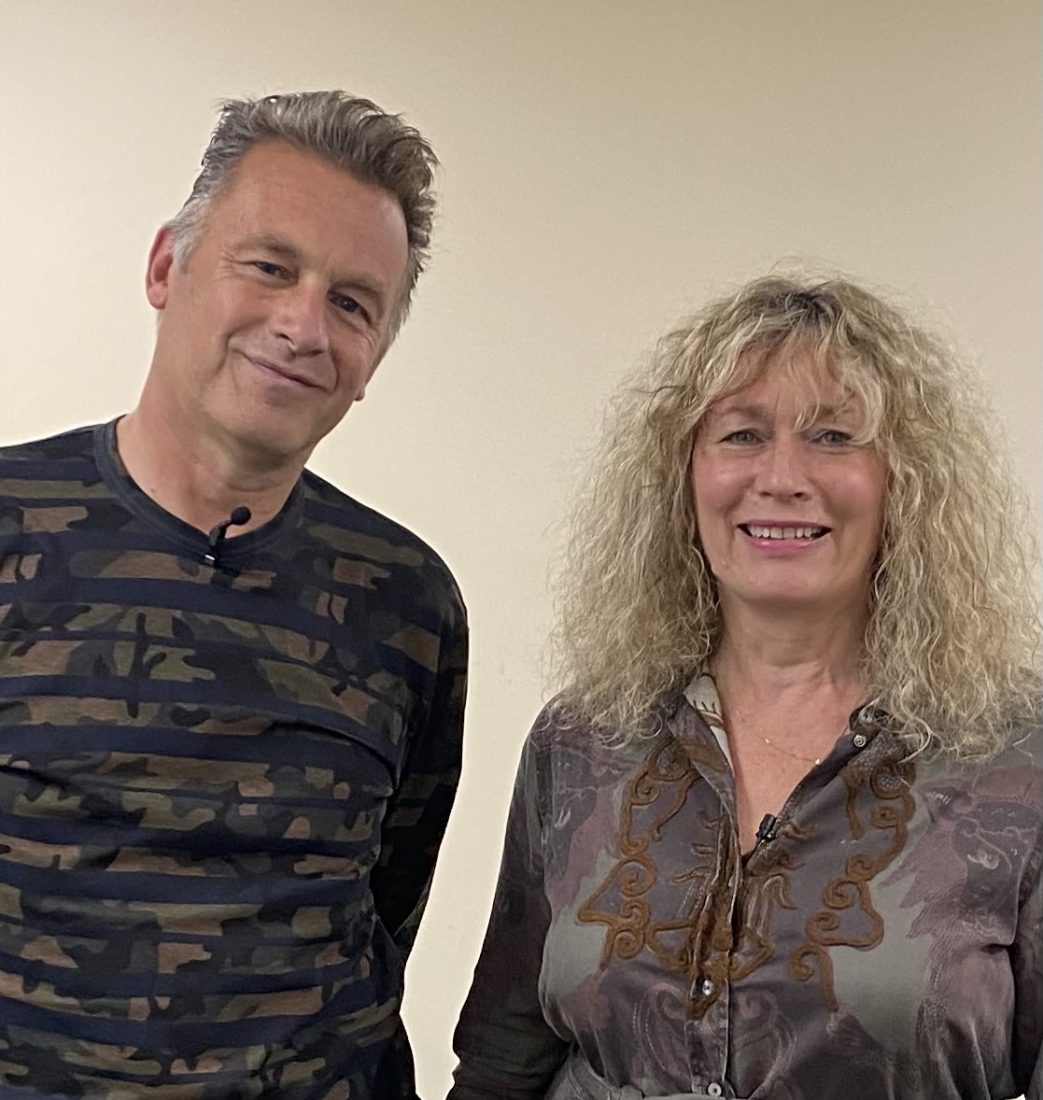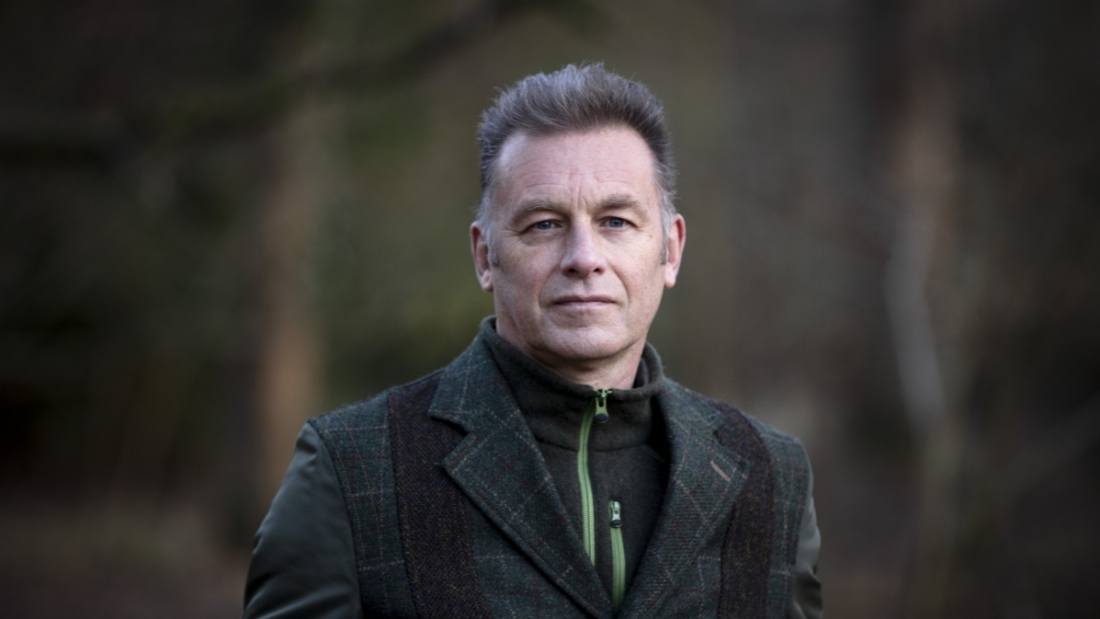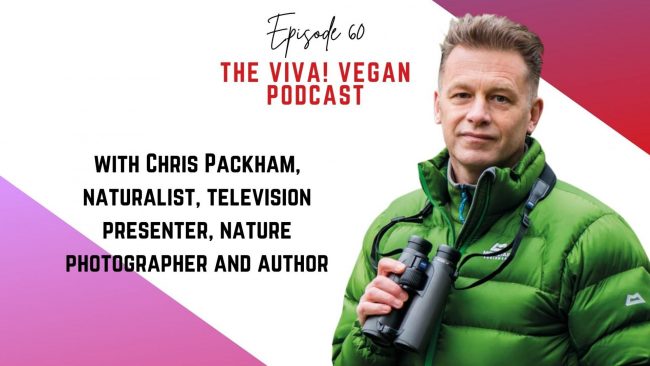 On the BBC’s Springwatch (and other seasonal ‘Watch’ programmes) Chris Packham comes across as the ultimate scientist, concerned mainly with facts. The emotional input is largely left to co-presenter Michaela Strachan but don’t be fooled – passion and commitment ooze out of his every pore and, boy, has he paid a price for it!
On the BBC’s Springwatch (and other seasonal ‘Watch’ programmes) Chris Packham comes across as the ultimate scientist, concerned mainly with facts. The emotional input is largely left to co-presenter Michaela Strachan but don’t be fooled – passion and commitment ooze out of his every pore and, boy, has he paid a price for it!
He has condemned the whole concept of culling (killing) badgers and has consistently opposed the ‘barbaric’ practice of fox hunting. As a result, the Countryside Alliance has tried its hardest to get the BBC to sack him; dead animals have been left outside his isolated house in the New Forest; an arson attack was carried out by two masked men who blew up a Land Rover at his front gates, destroying them; and he is constantly trolled on social media, including numerous death threats. Considering all that’s happened, he takes these threats very seriously but insists it won’t stop his campaigning for animals. That takes some guts!
The list of Chris Packham’s interests and achievements is staggering. Although he’s best known as a naturalist and TV wildlife presenter, that doesn’t even scratch the surface. He started his working life as a wildlife film camera assistant and since then the number of nature programmes he has fronted or made through his own production company, is vast. He has written numerous books and papers and is an accomplished photographer. Awards have come thick and fast and he has still found time to support numerous charities, including being an Ambassador for the National Autistic Society. Chris is on the autistic ‘spectrum’, having Asperger’s Syndrome – a diagnosis that didn’t come until he was in his forties.
In his TV programme Chris Packham: Asperger’s and me, he is brutally honest about its impact on him. He struggles in social situations, has difficulty with human relationships and is, by his own admission, ‘a little bit weird’. Chris experiences the world in a very different way to others, with heightened senses that at times are overwhelming and a mind that is constantly bouncing from one subject to another. He is also very precise in what he says – there’s no padding or waffle just clear and unambiguous communication.
It was typified by his response when I asked him why scientists weren’t being more outspoken about the fact that we are in history’s sixth mass extinction and that livestock are the primary driver – and I quoted studies that confirmed this. Chris replied:
“I think it’s really important that we’re precise with words. It’s common parlance to say that we’re in a sixth mass extinction but I prefer a sixth mass extermination because it’s us who are exterminating the rest of the world’s biodiversity and ultimately, if we continue to do so, ourselves in the process. It’s not an accidental thing; it’s not that we’re losing them, we’re destroying them. We’re either actively killing them or we’re taking away their habitat.
“I fear that the single biggest problem we face is that the human species is remarkably intelligent but can’t change its mind very easily. All the facts and figures can be put on the table but if you push them too hard, people can become quite intransigent. We’re living in exceptional times and, globally, we have a very unexceptional group of leaders.”
I was interviewing Chris Packham at the 2021 Vegan Camp Out that Viva! sponsors and his presence there was a magnificent testimony to how its status has blossomed over just a few years. Chris confirmed that as he continued his line of thought.
“I don’t think they’re going to fix it – we will have to push them to fix it and that’s why Vegan Camp Out is so important. It is a collective of people who’ve summoned the courage and integrity to change their minds and that fortitude is something we need to celebrate. It proves that there is hope for us to make a difference.”
I don’t easily set people on pedestals, do hero worship or readily genuflect but Chris Packham has been way up there in my esteem for almost as long as I can remember. Although his face is so familiar and I feel I know him, I’ve only met him once previously – at the launch of his company, Wild Justice, which takes legal cases and advocates for a better deal for UK wildlife. I had no time then to pose the questions I wanted to. One was my speculation as to whether people have grown so used to being shat upon that they’ve developed a lack of respect for authority.
“I think you’re right, people are disenfranchised, they’re disempowered. They’re disconnected from the idea that their voice will ever matter and that’s why we face what seems to be pervasive apathy. But what we have to remember is that we don’t need everyone to change their minds – science tells us that we need just 25 per cent of people to change their thinking about something and then it cascades quickly. By the time you get to about 27 per cent, you’re on a roll, and in a very short space of time, the entire population will change.”
Wow! When I consider how the vegan revolution has exploded in the last couple of years I’m overjoyed. Suddenly it puts into perspective the millions of leaflets Viva! has distributed, the thousands of talks we’ve given and the acres of newsprint that’s been devoted to our exposés. Are we now on the brink of something amazing? People are starting to change their shopping habits so it seems we do have power in terms of choosing what we buy. Chris agreed.
“What we put in our mouths has been produced either directly or indirectly by ecosystems servicing earth – it’s either been farmed or it’s been harvested and hasn’t magically appeared from outer space. It’s our closest connection with the natural world and it happens every day. But we’re bedevilled by food labelling. We see pictures on cigarettes of what long-term smokers’ lungs look like and I want to see pictures on packaging of what meat does to us and the conditions in which those animals have had to live.”
He has a point – why isn’t there labelling on bacon to say that it’s a class one carcinogen? And of course over 80 per cent of all meat comes from factory farming. Was it this, I wondered, that made Chris originally go vegetarian.
“No, I’ve been vegetarian since my early 20s, I thought I would just cut down on meat and then I found after a break from it, that it made me ill so I gave it up. I carried on eating fish but then, of course, I recognised that our fish stocks are seriously imperilled – and that’s an understatement of enormous magnitude, many are on the brink. It became clear that eating fish was unsustainable but in any case, I had never toed the line that fish didn’t feel pain and all that nonsense.
“However, it was factory farming that finally pushed me from vegetarianism to veganism, after I’d been to an indoor, zero-grazing dairy unit. It was spick and span, remarkably clean and none of the animals was being obviously abused but they never went outside. They did three daily lactation cycles and had their calves taken away instantaneously after birth. I’d never been to one before and it was as close to Aldous Huxley’s Brave New World as I could ever imagine, which I’d read as a 14-year-old.
“I got in the car after spending the day there and that was it – game over. I knew I couldn’t trust myself or food labelling claiming good quality, organically produced, animal-husbandry-friendly dairy products. If I’m not in control of myself, how am I going to be in a position to ask people to do something which I think is a better idea?”
I know the feeling well as Viva! investigated dairy farms supplying Cadbury, one of the biggest names in the world, and went into several of their dairy farms and every one was zero-grazed – animals that never see a blade of grass. Why, I asked Chris, do people still see farming as some kind of rural idyll – a cognitive dissonance where we are encouraged to love our pets, respect wildlife but do anything we like to farmed animals?
“We’re conditioned to see a dog and a cat as a companion animal but a pig as something we eat. It never worked for me. We know that pigs are exceptionally intelligent animals so to try and pretend that they don’t know what’s happening to them in those often horrendous farmed conditions is nonsensical.
“Again, it’s one of these cultural conditioned things – fish don’t feel pain so they don’t matter. People are justifiably upset about East Asian people eating dogs as it’s a complete affront to our sensibilities – dogs share our lives, share our beds, share our food, share our love. The idea that we would kill them and eat them is horrendous. Frankly, folks, what’s the difference between a dog and a pig? You tell me! It’s utter nonsense.
“The difference is that most farming is hidden. If it wasn’t for people like you showing what’s really going on behind those closed shed doors, then they would carry on blissfully ignorant.”
Chris Packham is one of the few prominent people to have publicly opposed the badger cull and has been brilliantly outspoken in his condemnation – and has earned my respect and deepest and most sincere thanks. I had to ask him how the government’s continued determination to carry on the slaughter affected him. He didn’t hold back.
“I feel an enormous sense of shame and a colossal sense of failure but then it’s only adding to the colossal sense of failure that I manifest when I tell you that since 1970, when I remember Pelé nearly scoring against Gordon Banks, on our first colour television, that we’ve lost nearly 70 per cent of the world’s wildlife. Just 10 years later, I was a fledgling active conservationist and by 1990, I was trying to drive conservation as hard as I could.
“We’ve lost all those animals, we’ve lost 90 million birds from the UK countryside; 95 per cent of our collared doves, in some areas, 97 per cent of our hedgehogs – Mrs Tiggy Winkle for goodness’ sake! UK conservation as a whole will carry the badger cull as a terrible tattoo of failure for a long time. It persisted because it became a political decision, not a science-based one.”
How does that make you feel, I asked, that government bowing to the pressure of an agricultural lobby rather than looking at the science and by so doing, being prepared to massacre our beloved wildlife?
“It’s absolutely sickening,” Chris replied. “I was brought up always to question authority, politely and democratically, but consistently challenge it. It was really clear to me as a young teenager that anyone who had a vested interest in either keeping things the same or making them worse was someone to be feared. Again, with my magic wand, I would make one change both here and in other parts of the world – I would ban lobbying.
“We should elect people who are informed by other people who are qualified to give them best advice and it should be entirely independent. They should not be having their ears bent every five minutes by someone who has a vested interest in making large sums of money out of perpetuating suffering – and perhaps endangering our planet and our own species.”
As agriculture has become ever-more multinational, there is the old thorny question of whether we should work with global corporations and the political system or whether we should be looking for a revolution to produce a new world order?
“I haven’t seen a revolution that has ever gone particularly well, to be quite honest, so I’m really hoping that that isn’t going to happen. Even when we’ve talked about velvet revolutions, there’s always been a metal fist inside the velvet glove, and it hasn’t gone well. I’m up for conversation, creative progress and democratic change.”
And so we come back to the role of the individual. I wondered how important Chris thought it was for people to go vegan or at least start down the path that leads there.
“You’ve made a conscious decision to change, you’ve changed your mind. The collective impact of that is that a lot of other people have changed their minds and that’s having an impact on the market. A few years ago, there were hardly any plant-based milks but now there is sustained growth every year. That’s because people here at Vegan Camp Out, people like you and I, are making those decisions and are having an impact. That has to build our confidence that we can make a difference.
“I don’t trust (I was going to say anyone) but I don’t trust the majority of our governors, from local councils through to global conglomerates of politicians, to make those decisions for us because I consistently see them either not making any decision at all or making the wrong one. What’s quite astonishing to me is that they continue to get away with it. Then again, I can’t stand people getting away with essentially a crime and that’s what gets me out of bed five minutes earlier every day!”
You must be getting up very early then, I said. Chris laughs and says, “I try!” But what is it that he hopes for – how does he envisage Britain in, say, 20 or 30 years’ time?
“Conjuring a vision like that over the last few years has become increasingly frightening, if I’m honest with you. Significant opportunities have come and been lost. We’ve had a global interruption with Covid-19, which has set us back, but now we need to pick ourselves up, think about how we address some of the urgent issues confronting us but in a new way, because the world has changed post-Covid.
“It is something we should have seen coming but none of us really did. We got a vaccine in less than a year and whenever we’ve been confronted with really significant problems, we’ve come up with solutions. We have that capacity. We’re really good at cure but we’re rubbish at prevention.
“Every day I see our species hurting. I see Australia on fire, North America on fire, Cyprus and Greece on fire. I see people losing their lives, their livelihoods. I see vast swathes of forest being burned. Then I see the flooding, cars floating past in London and I think, ‘Hold on people, it’s not just over there, it’s here and we’re all part of it.’ At what point are enough of us going to pull our heads out of the sand and say, ‘We can’t put up with any more of this. We’re going to change now.’ And that’s what I think will happen. I think it will get to a point where we’re sufficiently uncomfortable and change will happen.”
There is something remarkably solid about Chris Packham’s views and motivation – it’s as if the science he sets so much store by has set up home in him and when he talks, he talks fact not opinion.
I look at so many privileged TV presenters – and Richard Madeley immediately comes to mind – angrily interviewing an Extinction Rebellion activist for holding up traffic and delaying people. I think to myself that the world and all its inhabitants are in serious trouble and Madeley has never once spoken out about it and yet here he is, trying to demolish someone who is trying, essentially, to save the planet. I think to myself – ‘thank God for Chris Packham!’







 On the BBC’s Springwatch (and other seasonal ‘Watch’ programmes) Chris Packham comes across as the ultimate scientist, concerned mainly with facts. The emotional input is largely left to co-presenter Michaela Strachan but don’t be fooled – passion and commitment ooze out of his every pore and, boy, has he paid a price for it!
On the BBC’s Springwatch (and other seasonal ‘Watch’ programmes) Chris Packham comes across as the ultimate scientist, concerned mainly with facts. The emotional input is largely left to co-presenter Michaela Strachan but don’t be fooled – passion and commitment ooze out of his every pore and, boy, has he paid a price for it!
